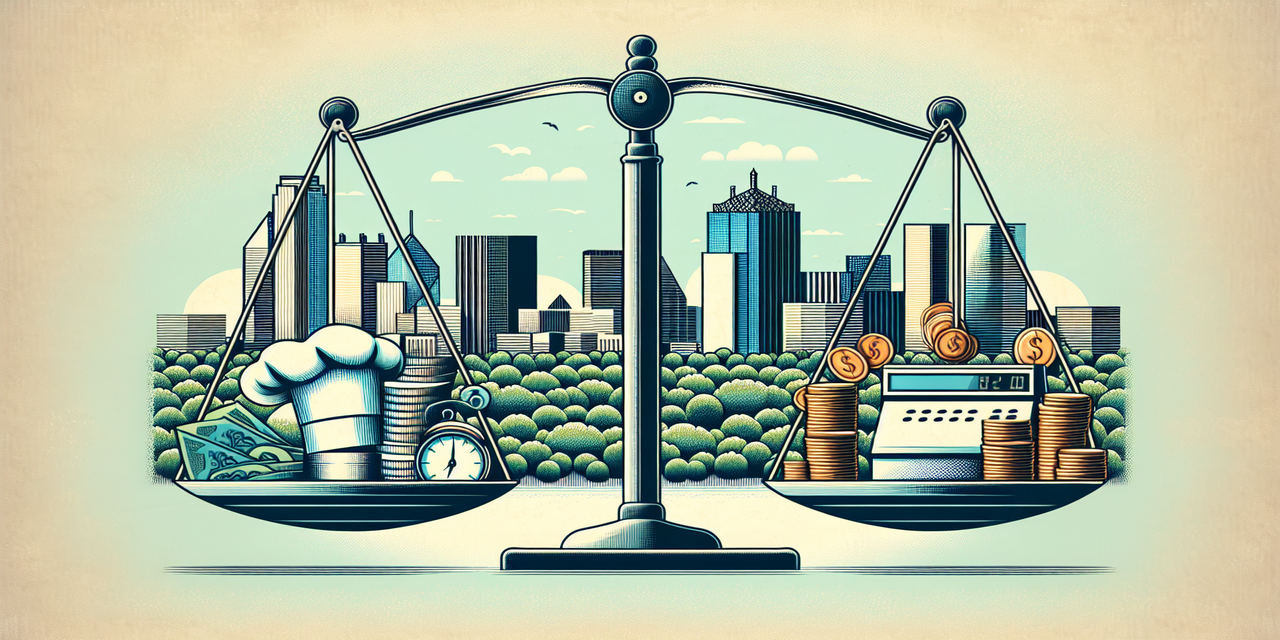Dallas Chef Salary vs Tips: Key Takeaways
- Average annual chef salary in Dallas ranges from approximately $52,674 to $65,172.
- Chefs in Dallas are generally not considered tipped employees and do not typically receive direct tips.
- Tips in Texas primarily benefit front-of-house staff, such as servers and bartenders, with a tipped minimum wage of $2.13/hour.
Understanding how Dallas chefs are compensated helps restaurant employers manage payroll and tip policies effectively.
This guide highlights salary expectations and tipping practices affecting chefs in Dallas.
1. Dallas Chef Salaries Overview
In Dallas, chefs receive a fixed salary rather than earning a significant portion of their income through tips.
Data from Glassdoor reports an average yearly salary of about $65,172 for chefs, with earnings varying between $49,106 and $87,261 depending on experience and establishment.
Salary.com notes a slightly lower average of $52,674, with typical salaries ranging from $45,778 to $61,418 annually.
The variation reflects differences in chef roles, restaurant types, and individual negotiations but confirms salaries as the primary form of compensation.
Employers looking to refine their hiring process can benefit from our guide to retaining a chef, ensuring skilled kitchen staff remain motivated and committed.
2. Tipping and Its Role for Chefs in Dallas
While tipping is customary in Dallas restaurants, it largely benefits front-of-house employees like servers and bartenders rather than kitchen staff.
Chefs are considered non-tipped employees per both federal and Texas state labor laws, meaning they usually do not receive tips directly from customers.
Texas maintains the federal minimum wage standard for tipped employees at $2.13 per hour, but since chefs are salaried and non-tipped, this does not apply to them.
For insights on managing tipped staff properly, employers should review our how to hire a barista guide, which provides excellent tips on hiring and managing tipped hospitality workers.
Why Chefs Do Not Typically Receive Tips
Chefs work behind the scenes and do not engage directly with customers, which is a key reason tipping customs exclude kitchen staff.
Tipping aims to reward personal service and customer interaction, roles filled by front-of-house staff.
Tip Sharing and Pooling Considerations for Chefs
Some restaurants implement tip-sharing pools where tips collected by servers might be distributed among support staff.
Employers in Dallas should verify tip-pooling arrangements comply with laws to ensure only employees who regularly receive tips participate.
Since chefs do not customarily receive tips, including them in tip pools may raise legal concerns unless properly structured.
To avoid legal issues with tip pooling, check out our comprehensive tip pooling spreadsheet template designed for restaurant managers and owners.
3. Compliance and Best Practices for Dallas Employers
Employers must adhere to federal and Texas labor laws in defining wage and tip policies for chefs and other restaurant workers.
It is essential to classify chefs correctly as non-tipped employees and pay them a fair salary independent of tips.
When establishing any tip-sharing practices, employers should:
- Include only those staff members who customarily receive tips.
- Maintain transparent records of tip distribution.
- Provide clear communication to employees about wage and tip arrangements.
Failure to comply with these rules can result in legal repercussions and fines.
Additional helpful information on labor laws can be found in recruitment and hospitality job posting compliance resources.
4. Sample Pay Structure for Chefs in Dallas Restaurants
Most Dallas restaurants compensate chefs through consistent salaries that may be supplemented by bonuses but rarely through tips.
A salary of $50,000 to $70,000 annually is common, adjusting for experience and restaurant scale.
Bonuses or profit-sharing may be used as incentives in higher-end or larger establishments instead of direct tipping.
Advantages of Salaried Chef Payments
- Predictable income encourages job stability and satisfaction.
- Clear differentiation between kitchen staff and front-of-house roles simplifies compliance.
- Avoids confusion or disputes regarding tip sharing.
To understand more about chef roles and career advancement, visit the chef job description and differences between executive chef and chef de cuisine spotlight for in-depth info.
5. Resources for Dallas Employers on Labor Laws and Tipping
Employers seeking clarity on wage and tip regulations can consult:
- U.S. Department of Labor – Fair Labor Standards Act (FLSA) for federal wage guidelines.
- Texas Workforce Commission – Labor Law Information for state-specific rules.
- Internal Revenue Service – Tip Recordkeeping and Reporting for tax compliance on tip income.
For further career insights on kitchen leadership, explore the sous chef interview questions and executive chef interview questions to aid in hiring or career growth conversations.
Dallas Chef Salary vs Tips: Conclusion
Chefs in Dallas typically earn fixed salaries averaging between $52,674 and $65,172 annually and do not commonly receive tips.
Tips are primarily intended for front-of-house employees who directly serve customers.
Employers should ensure clear wage classifications and lawful tip-sharing practices to avoid legal issues.
By understanding the salary and tipping distinctions, Dallas restaurant owners can build compliant, fair compensation structures benefiting both chefs and tipped staff.
For strategies on how to hire effectively within the hospitality industry, see our spotlight on how to hire top chefs and how to hire a restaurant manager.


.png)

.png)
.jpg)